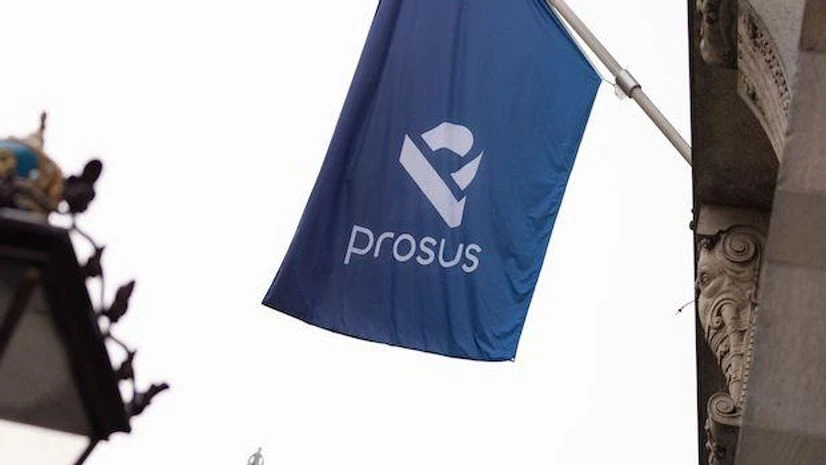Online food and grocery delivery platform Swiggy’s losses jumped 80 per cent year-on-year (YoY) in FY23, even as gross merchandise value (GMV) of its food delivery business grew 26 per cent, the company’s biggest investor Prosus said in its annual financial report on Tuesday. Though Prosus’ statement says the figures for Swiggy is for “FY23”, the “year in Swiggy’s section refers to 1 January 2022 to 31 December 2022”.
On the other hand, Prosus’ fintech investment PayU witnessed its revenue jump 31 per cent in FY23 to $399 million but saw a trading loss of $10 million as it shut down its LazyPay card business. It said PayU India is close to a breakeven.
The Netherlands-listed international assets arm of South African group Naspers which has made investments in Indian unicorns -- such as Byju’s, Pharmeasy, and Eruditus -- holds a 33 per cent stake in Swiggy.
“Our share of Swiggy’s trading loss increased to $180 million (FY22: $100m), driven by investment in Instamart, which peaked in the year,” Prosus said. This translates to an overall loss of around $545 million for the food aggregator during the year.
The investor further said: “Our share of Swiggy’s revenue grew 40 per cent to $297 million” from $212 million, “reflecting higher average order values, and increased revenue from delivery fees and advertising sales”. This brings the food delivery firm’s overall revenue to around $900 million.
Swiggy’s core restaurant food delivery business, Prosus said, recorded GMV growth of 26 per cent, while Instamart -- its quick commerce vertical – grew its GMV by 459 per cent.
More From This Section
“In the last two reporting periods, Swiggy has concentrated on reactivating users, increasing monthly frequency, and improving user conversion. The benefits are reflected in its results for FY23, with over 272,000 enabled restaurants on its platform, 155 per cent of pre-pandemic levels, with GMV at $2.6 billion,” the investor said.
“In FY23, Swiggy also redoubled its focus on the profitability of its core restaurant food delivery business, which its CEO recently announced had turned profitable in March 2023 (after factoring all corporate costs excluding share-based costs) following an investment phase,” Prosus stated.
Swiggy's food delivery business turned profitable in the March quarter, after considering corporate costs and excluding employee stock options (ESOPs), CEO Sriharsha Majety announced last month.
The firm’s listed rival Zomato, excluding its quick commerce business, also turned adjusted earnings before interest, taxes, depreciation, and amortisation (Ebitda) positive in the quarter ended March. In FY23, the Gurugram-based firm trimmed its losses to Rs. 971 crore, from Rs. 1,225.5 crore in the previous financial year, with the company targeting profitability at a consolidated level in the next four quarters.
Prosus’ statement comes a month after reports that two US investors marked down their valuation of Swiggy. A fund managed by asset management firm Baron Capital Group slashed Swiggy’s valuation by 34 per cent to $7.1 billion (as of December 2022), according to a filing with the US Securities and Exchange Commission (SEC). Invesco, which led Swiggy’s previous funding round, marked down the valuation by 33 per cent from $8.2 billion to about $5.5 billion.
The Bengaluru-based food aggregator, since the start of this year, has undergone retrenchments as it prepares for a public listing. Swiggy laid off 380 employees and shut down some of the company’s business verticals, including meat delivery and its premium grocery delivery business Handpicked. In March, the firm also sold its cloud kitchen business, Swiggy Access, to Kitchens@ in a share-swap deal.
Swiggy, in its results for FY22, reported that its losses widened 2.24 times to Rs. 3,628.9 crore, from Rs. 1,616.9 crore in FY21, fuelled by a 227 per cent rise in costs.
Expenses came in at Rs. 9,748.7 crore in FY22, compared to Rs. 4,292.8 crore the year before. Despite this, Swiggy reported revenue of Rs. 5,704.9 crore, a little over twofold jump from the previous financial year.
According to analysts at HSBC, Swiggy’s cash burn in FY22 stood at Rs. 3,900 crore; Zomato burnt Rs. 700 crore during the same period.
Fintech shows promise
Prosus’ annual report said PayU witnessed a 31 per cent rise to $399 million in revenue as it experienced growth in enterprise and small and medium-sized businesses, as well as diversification into new segments, such as government merchants, and omnichannel and other non-MDR (merchant discount rate) products.
The Indian arm of the Prosus group’s payment service provider (PSP) business contributed 51 per cent of the core PSP business revenues, up from 47 per cent in FY22. Additionally, India’s total payment value (TPV) rose 33 per cent to $58 billion from 44 per cent in the previous financial year as it recorded transaction growth of 25 per cent to 1.4 billion.
The company’s core PSP business posted 23 per cent growth in revenue to $790 million as transactions rose 19 per cent to 2.7 billion and TPV clocked $98 billion, growing at 24 per cent.
It registered 47 per cent growth in loan disbursal as it issued $742 million in loans, translating into a loan book of $256m in FY23. The credit business grew revenue three times $83 million, attributed to a growth in the personal loans segment.
The report states that the India credit metrics exclude LazyCard, the group’s digital bank offering which was shut down last year in response to regulations. This accounted for the largest part of the credit business’ trading loss.

)
